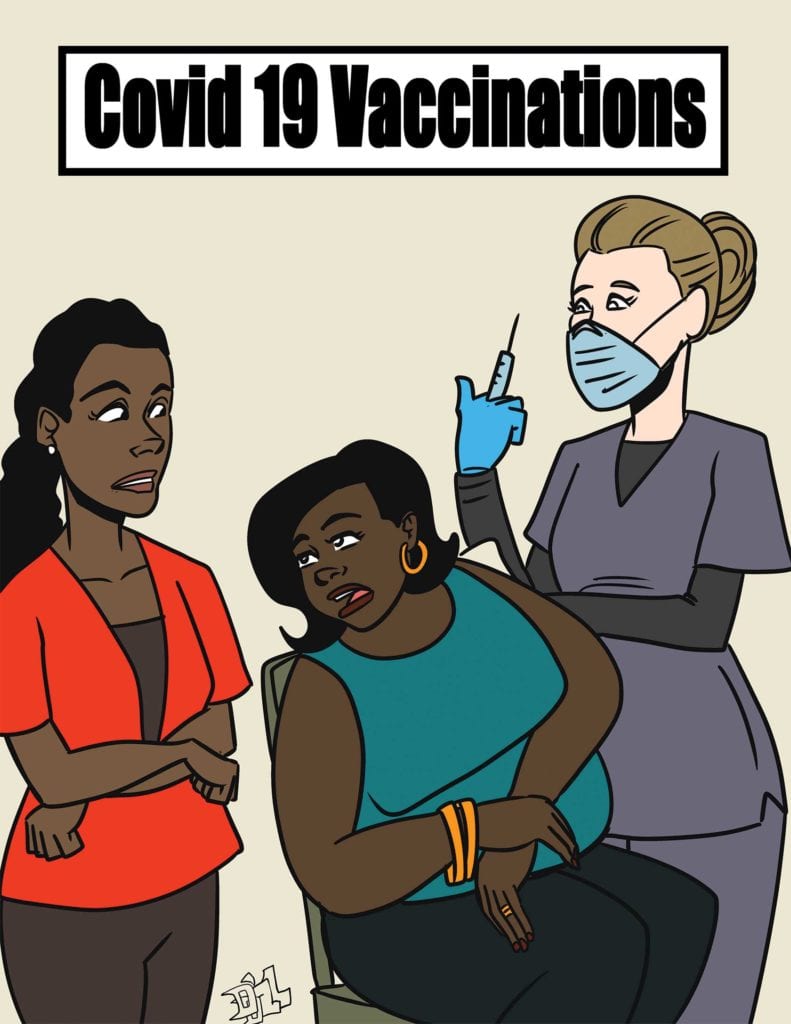
The recent Memorial Day on May 31 was a trying time for those who lost loved ones in the military. As we still combat COVID-19, citizens should consider whether the nation adequately confronted the viral invasion that has threatened us all.
The pandemic has been extremely serious. As of June 24, there have been 599,354 deaths from the virus. Fortunately, the rate of deaths is decreasing. The dynamic vaccination program is primarily responsible for the reduction in the rampage of the disease, as 290,724,607 vaccines have been administered and now 40% of the U.S. population has been fully vaccinated.
We have survived a very serious virus. It would be wise for those who were hospitalized to determine whether they suffer from medical conditions that created a recovery challenge for them. Those hospitalized during the year that ended on March 31, 2021 may have had their COVID-19-associated hospitalization made more severe by these underlying medical conditions: obesity (48.6%), diabetes (43.9%) and heart disease (36.5%).
The potential fatality of COVID-19 absorbed much of the available medical attention. Now that the disease is under greater control, individuals should arrange for medical attention for those underlying conditions. It is also a good time to consider the mental attitudes that we brought to the battle against COVID-19.
American residents should be grateful for the vaccines that were readily available. President Biden has organized a massive program to vaccinate 70% of U.S. adults by July 4. But it seems likely that goal will not be attained, as too many Americans fail to show up for free and readily available vaccinations. Projections are that the count will be about 6 million adults short on July 4.
People are dying in other parts of the world because the vaccination is not available. But Americans have to be induced to show up for free shots with the promise of free beer, free tickets to sports events, or free entry in lotteries that offer substantial cash prizes. This is a disgraceful display of ingratitude for the many blessings Americans may receive.
About 600,000 people in America have died from COVID-19. While the virus was increasing in a number of people, many still refused to wear a mask and maintain a six-foot distance. Rather than abide by the medically approved behavior, some Americans were all too willing to place their fellow citizens at risk by being virus spreaders. Some even assumed a defiant posture. The prospective safety of their neighbors was not enough of an inducement to be caring.
Anyone who has been in the Army or the Marines knows that you can win a war only with the camaraderie of your fellow militants. It is essential to depend on one another. Since a mask also protects those who come in contact with the wearer, refusal to comply delivers a hostile message to those around you. That act creates a hostile environment. And the refusal to be inoculated threatens friendships and family.
Memorial Day induced us to consider as well those we lost in the battle against the virus pandemic. With the leadership of President Joe Biden, we now seem to be winning. But it appears that Biden’s goal of 70% of Americans receiving at least one inoculation will be missed. However, Massachusetts and 15 other states, as well as the District of Columbia, have tallied 70% or more inoculated residents. We should now consider how we can resolve differences and work together in the future to preserve our democracy as well as the good health of American citizens.






